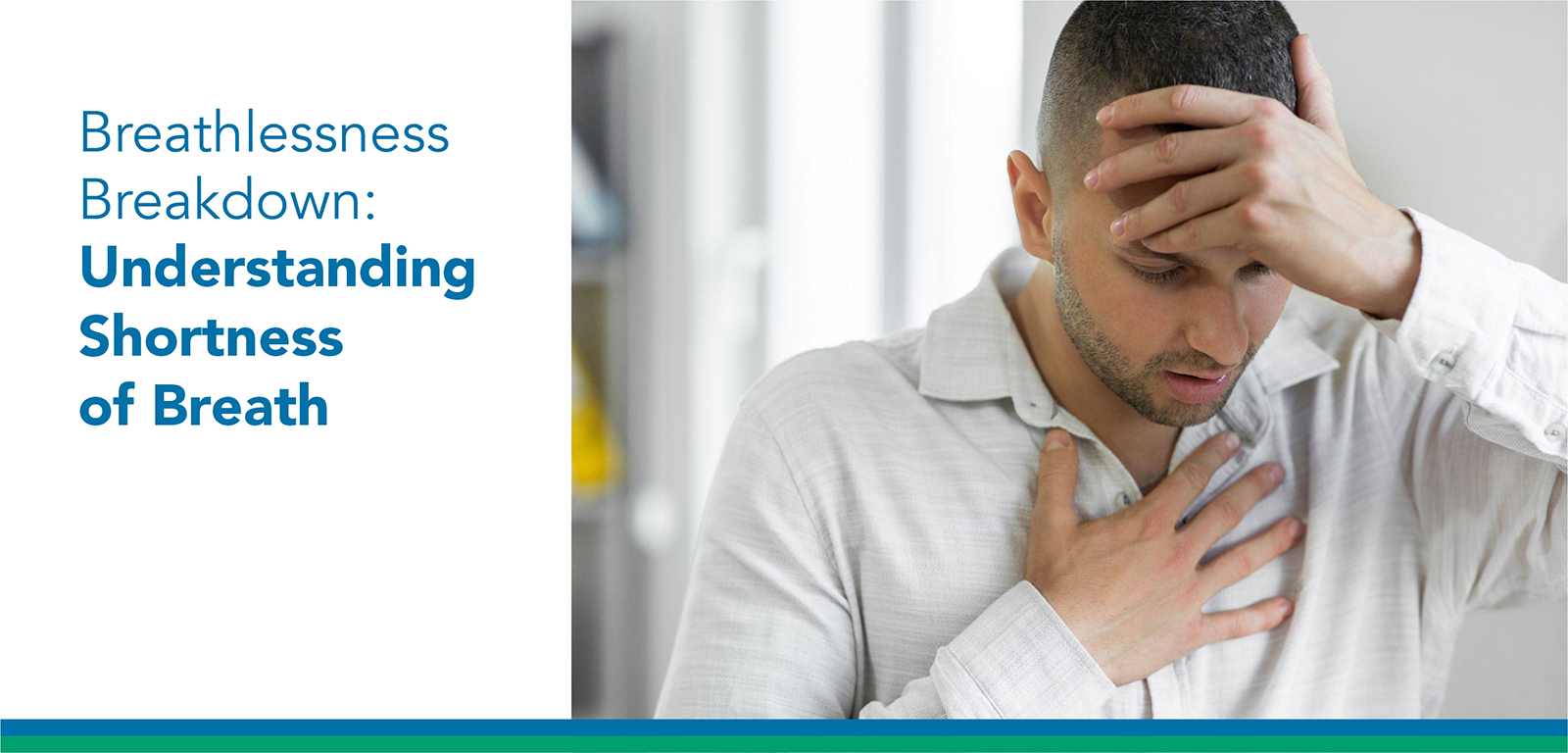Breathlessness Breakdown: Understanding Shortness of Breath

Imagine if you're climbing a steep hill on a sunny day, admiring the picturesque landscape. Suddenly, you feel your chest tighten, your heart race, and an overwhelming urge to gasp for air. The world around you blurs as your body cries out for oxygen. This sensation, known as shortness of breath, is an alarming experience that can send anyone into a state of panic. It's a signal from your body that something isn't quite right, and it demands your attention.
In Vadodara, a city graced by the presence of Sterling Hospitals, Race Course Road the pursuit of excellent healthcare is more than a mere aspiration; it's a reality. In this thriving healthcare hub, which boasts the reputation of being the Best Lungs Treatment Hospital in Vadodara, the matter of addressing shortness of breath is taken with the utmost seriousness. Let's delve into the intricacies of this phenomenon, understand its causes, and explore how a pulmonology treatment can help you breathe easier.
Shortness of Breath: Unmasking the Culprit
Shortness of breath, medically known as dyspnea, is the sensation of not being able to inhale enough air, often accompanied by a feeling of tightness in the chest. This can happen for various reasons, ranging from benign to severe. It's crucial to distinguish between occasional shortness of breath, such as during intense physical exertion, and persistent or recurrent dyspnea, which may indicate an underlying medical issue.
Common Causes of Shortness of Breath
- Physical Exertion: The most benign cause of shortness of breath is physical activity. When you engage in strenuous exercises or activities that your body isn't accustomed to, you may find yourself huffing and puffing. This is your body's way of demanding more oxygen to meet the increased energy demands.
- Anxiety and Panic Attacks: Stress and anxiety can trigger episodes of dyspnea. During a panic attack, your body enters a "fight or flight" mode, which can lead to rapid, shallow breathing and a feeling of breathlessness.
- Environmental Factors: Exposure to high altitudes, extreme temperatures, or polluted air can also induce shortness of breath. Your body responds to these conditions by altering your breathing rate to maintain oxygen levels.
- Medical Conditions: Several medical conditions can cause chronic dyspnea. These include chronic obstructive pulmonary disease (COPD), asthma, interstitial lung disease, heart failure, and even obesity. In such cases, timely intervention by a Best Lung Specialist in Vadodara becomes paramount.
Diagnostic Pursuit: Unveiling the Underlying Issue
When confronted with persistent or unexplained shortness of breath, seeking professional help is the wisest course of action. The Best Pulmonology Treatment Hospital in Vadodara I.e., Sterling Hospital is equipped with state-of-the-art diagnostic tools and a team of experts who can pinpoint the exact cause of your discomfort.
Diagnostic tests may include:
- Pulmonary Function Tests: These measure your lung capacity, airflow, and how well your lungs exchange oxygen and carbon dioxide.
- Chest X-rays and CT scans: These imaging tests can reveal structural abnormalities in your lungs and heart.
- Blood Tests: They can identify conditions like anemia or infection, which might contribute to dyspnea.
- Electrocardiogram (ECG): This records the electrical activity of your heart and can detect heart-related causes of shortness of breath.
- Bronchoscopy: A procedure that allows the doctor to view the airways and collect samples for analysis.
- Echocardiogram: An ultrasound of the heart to assess its function.
Customized Treatment: Tailored to Your Needs
Once the underlying cause of your shortness of breath is determined, a personalized treatment plan can be developed. This plan may involve a combination of the following:
- Medications: For conditions like asthma or COPD, medications can help manage symptoms and improve lung function.
- Lifestyle Modifications: Quitting smoking, losing weight, and increasing physical activity can significantly improve lung health.
- Oxygen Therapy: For severe cases, oxygen therapy may be necessary to ensure adequate oxygen levels in the blood.
- Pulmonary Rehabilitation: A program that includes exercise, education, and support to improve overall lung function and quality of life.
- Surgery: In some instances, surgical intervention may be required to treat structural abnormalities or remove tumors.
Conclusion: Breathing Easy
In the bustling city of Vadodara, the ability to breathe freely is a fundamental right that should never be compromised. Shortness of breath may be a formidable adversary but armed with knowledge you can conquer it.
Remember, your breath is your life force, and taking care of your respiratory health is paramount. So, if you ever find yourself wrestling with dyspnea, don't hesitate to seek help from the experts at Sterling Hospitals, Race Course Road – your partners in the journey to better respiratory health. Together, you can ensure that each breath you take is a step toward a healthier, happier life.






